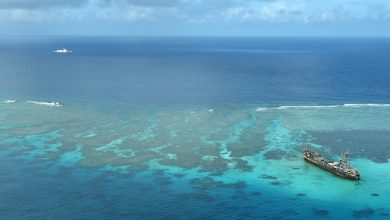As Southeast Asian nations and China enter the second phase of negotiations for a code of conduct in the disputed South China Sea, a senior Filipino diplomat said both sides remain hopeful it can conclude a deal aimed at reducing tensions in the resource-rich waters by 2021.
Foreign Affairs Assistant Secretary Juniver Mahilum-West said the 10-member Association of South East Asian Nations and China are optimistic that an agreement will be reached despite “big issues” hounding the negotiations.
“The time frame is that we would like to finish it by 2021. All we can do is try and have that indicative target date of completion,” Mahilum-West told a press briefing last night.
In August 2018, ASEAN and China agreed to a single draft of the code of conduct or COC, with an agreement reached in November 2018 for both sides to finalize the document within three years, starting from 2019.
Carl Thayer, professor emeritus at the University of New South Wales, said China’s continuing harassment and aggressive actions against claimants and ASEAN members, such as Vietnam, Malaysia, and the Philippines, have undermined trust and are likely to lead to hard bargaining to ensure the COC contains effective rules to deal with misconduct and threat or use of force. Other ASEAN members include Singapore, Indonesia, Thailand, Brunei, Cambodia, Myanmar and Laos.
“Unfortunately, the single draft negotiating text does not contain any effective enforcement mechanisms,” Thayer said, adding that the undefined legal status of the code is also contentious.
The regional bloc’s lack of consensus on the sea disputes is likewise a major challenge as each member’s national interest and leanings towards China have constrained efforts at unity.
Some ASEAN members insist that the code of conduct must be legally-binding – a position vehemently opposed by China. Other ASEAN members, on the other hand, have openly supported Chinese preferences. It’s not clear how these conflicting views will affect progress of future efforts to negotiate the code.
The Philippines is the current coordinator of the ASEAN-China dialogue relations and is co-chairing with China on the negotiation of the COC.
According to Mahilum-West, ASEAN and China have acknowledged the differences in their positions and are trying their best to resolve it so that a COC could be finalized.
“We realize that there are big items or big issues to be discussed and whether or not the COC is going to be a legally binding agreement is one of those questions. So I think the negotiators know fully well what the big issues are and I think that everyone is willing as well to add meetings, if possible, just so issues would be discussed adequately,” she said.
“In diplomacy we want to try approaches that work.”





